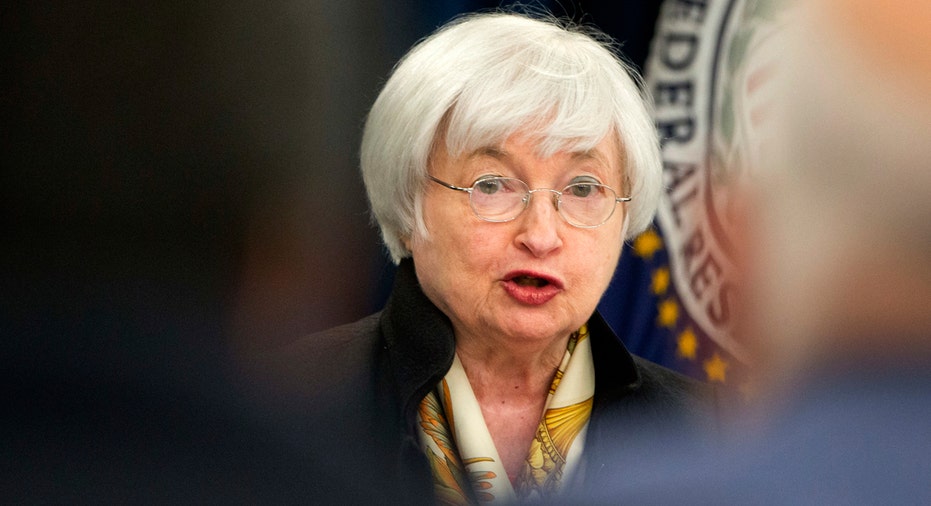Fed Expected to Keep Rates Unchanged, May Signal Year-End Hike

The U.S. Federal Reserve is expected to keep interest rates unchanged on Wednesday amid tepid inflation and recent weak economic data, but could signal an increased likelihood of a hike by the end of the year.
The U.S. central bank raised its benchmark overnight interest rate to a range of 0.25 percent to 0.50 percent in December, the first hike in nearly a decade, but has held rates steady this year.
Economists polled by Reuters see a slim chance of a rate increase at the conclusion of the Fed's two-day policy meeting on Wednesday, with the majority expecting one at the meeting in December.
"The last thing the Fed wants is to disrupt financial markets with a big surprise," said Torsten Slok, chief international economist at Deutsche Bank.
The Bank of Japan on Wednesday added a long-term interest rate target to its massive asset-buying program in an overhaul of its policy framework aimed at accelerating achievement of its 2 percent inflation target.
The BOJ said it would continue to buy long-term government bonds, but abandoned its base money target and instead set a "yield curve control" under which it will buy long-term government bonds to keep 10-year bond yields at current levels around zero percent.
The Fed's rate-setting committee will release its policy statement at 2 p.m. EDT (1800 GMT). Fed Chair Janet Yellen is scheduled to hold her quarterly press conference half an hour later.
The 17 Fed policymakers will have to balance a strong labor market, marked by an unemployment rate of 4.9 percent and job gains that are outpacing population growth, with inflation that is still well below the central bank's 2 percent target and weak August readings for manufacturing and service industry activity.
They have appeared increasingly divided on the urgency for a rate increase.
Fed governors Lael Brainard and Daniel Tarullo both recently reiterated they want to see firm evidence of rising inflation before resuming monetary tightening.
The Fed's preferred measure of inflation remains low at 1.6 percent and has been below target for more than four years.
But recent comments from a number of moderate policymakers suggest a degree of impatience is building.
Atlanta Fed President Dennis Lockhart said last week there should be a "serious discussion" about a rate hike at this week's meeting, while San Francisco Fed President John Williams, seen as a close Yellen ally, said two weeks ago that he would prefer to raise rates "sooner rather than later."
Boston Fed President Eric Rosengren, usually seen as a policy dove, also noted earlier this month that the risks to the economy were "becoming increasingly two-sided." That remark initially led markets to start pricing in a September rate surprise, although those expectations have since receded.
With Yellen unlikely to tip the committee's hand forcefully either way, a compromise could assuage concerns.
"That's precisely what the outcome of the meeting is likely to be: No move at this meeting, but a relatively low bar for hiking in December," Roberto Perli, a partner at Cornerstone Macro LLC, said in a note to clients.
The Fed also holds a policy meeting in early November, but investors have all but ruled out a rate move just days before the U.S. election.
RATE HIKE PATH
Alongside the policy statement, Fed officials will also provide a new set of forecasts for economic growth, unemployment, inflation and the path of interest rates.
When these projections were last issued in June, the Fed still projected two rate hikes in 2016. That will likely on Wednesday be cut to one.
The policymakers are also likely to downgrade their estimates for how many rate rises the economy will need in the coming years given that output, productivity and inflation are growing slower than in past decades.
All of which means intense scrutiny on Yellen's comments in the press conference, coming on the heels of her assessment in late August that the case for a rate hike had strengthened in recent months.
"She's likely to convey that she sees the fundamentals consistent with a move in the relatively near term," said Randy Kroszner, a former Fed governor who is now an economics professor at the University of Chicago Booth School of Business.
(Reporting by Lindsay Dunsmuir; Editing by David Chance and Paul Simao)



















